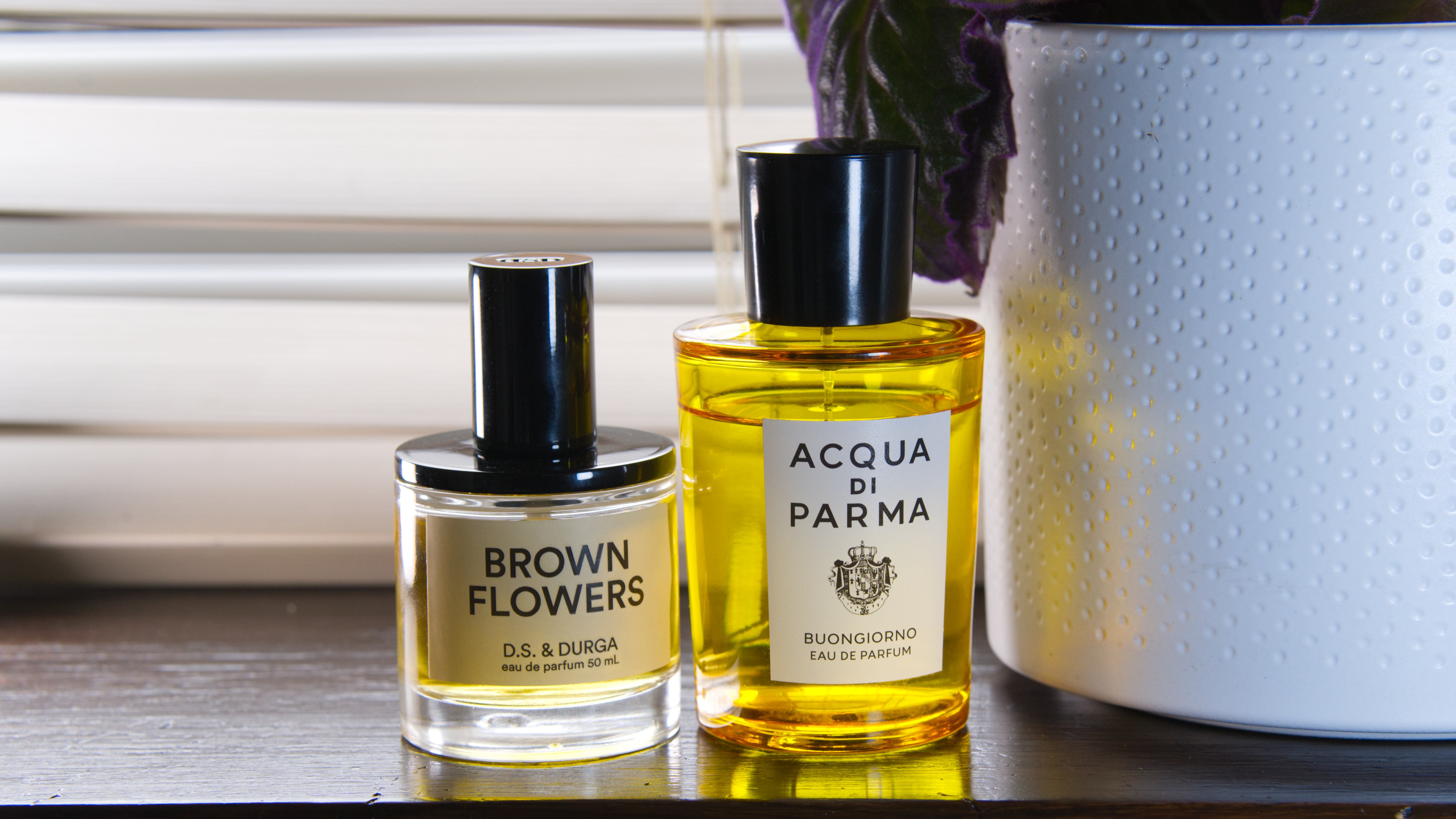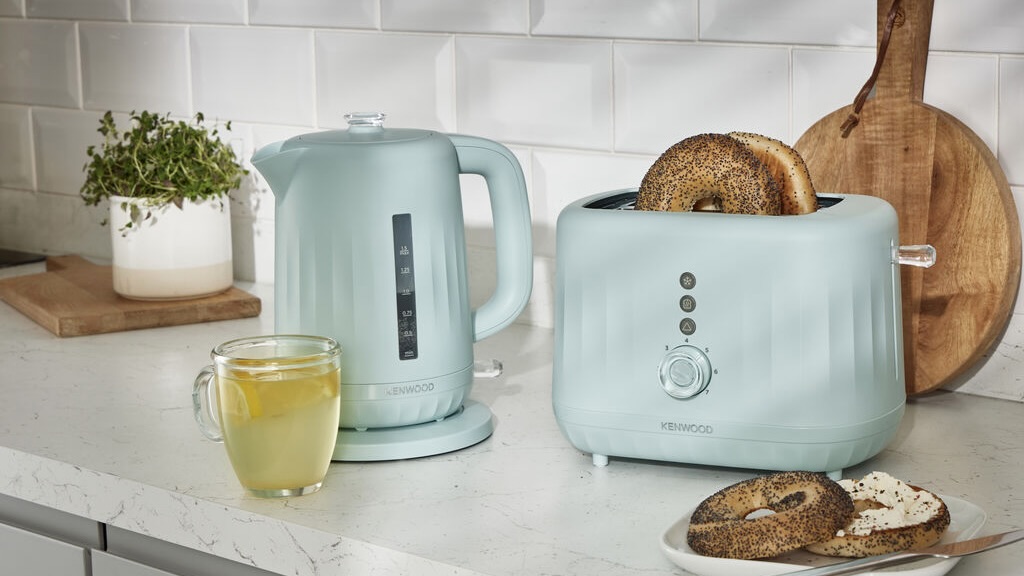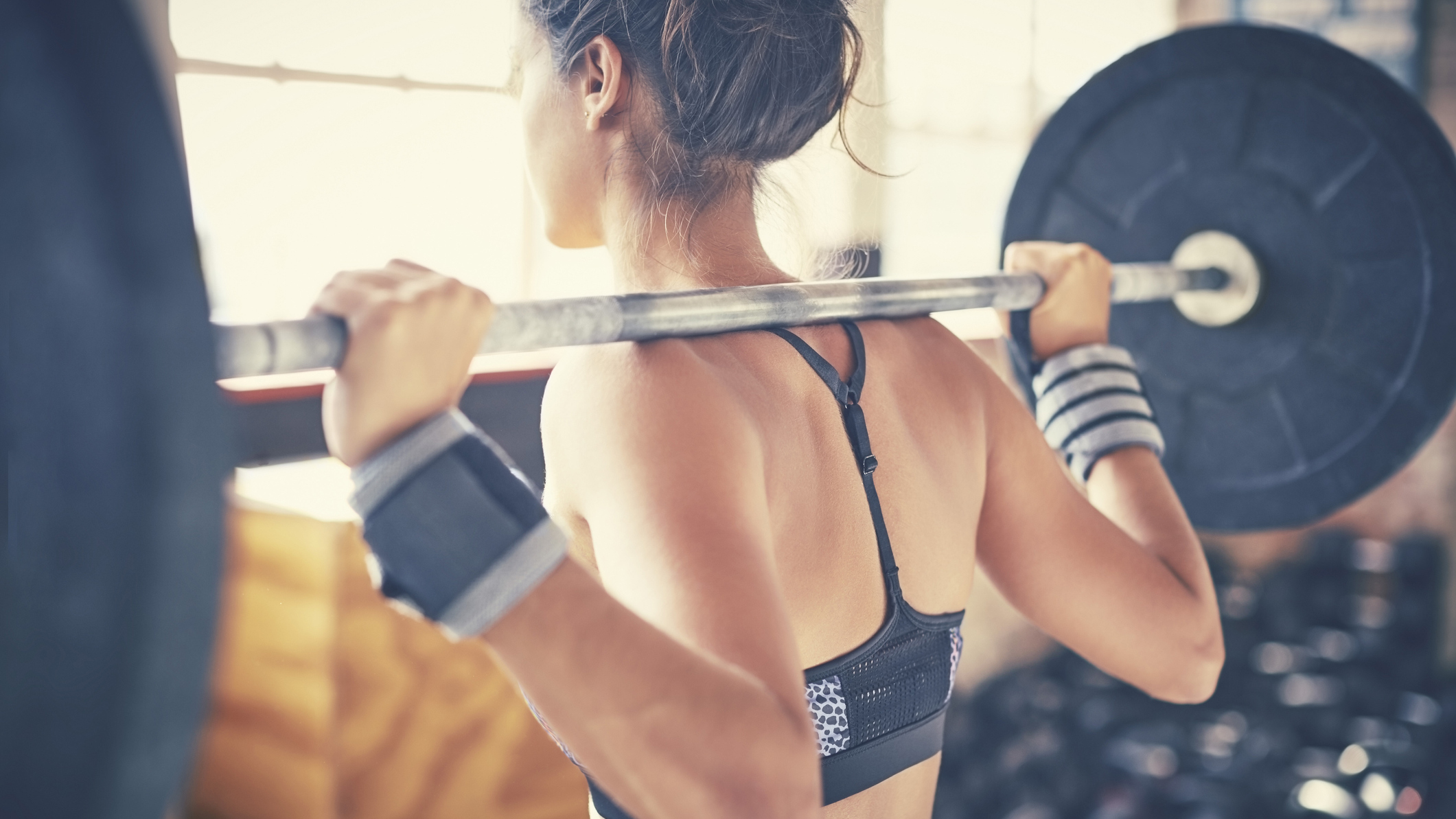

This is the best full body workout for those who're short on time but want to see some results ASAP. We aren't saying it will be easy, but if you're happy to put in some effort, this dirt-simple whole-body exercise routine can help you build muscle and lose weight simultaneously.
How can so few exercises provide a full-body workout experience? It's simple: you must perform the right exercise with the correct equipment. Don't worry about buying expensive home gym equipment; all you need is a couple of dumbbells – or adjustable dumbbells – a weight bench, and possibly a barbell with some bumper plates.
We called the group of exercises mentioned below 'The Big Five' – these compound moves activate a range of muscles and are an excellent way to build muscle easier and even to lose weight fast. We'll discuss how to perform the Big Five exercise below, its alternatives and some tips and tricks to maximise performance and even recovery.
Alternatively, give this push-pull-leg workout or the best full-body dumbbell workout for quick results (well, comparatively quick, anyway). Want your abs to pop? Although nothing here targets the abs specifically, the below compound exercises will require you to use your core a lot. Consider buying an ab roller and using our favourite core exercises if you want to get a six-pack.
FREE NATIVE UNION ECLIPSE 3-WAY USB CHARGER WHEN YOU SUBSCRIBE
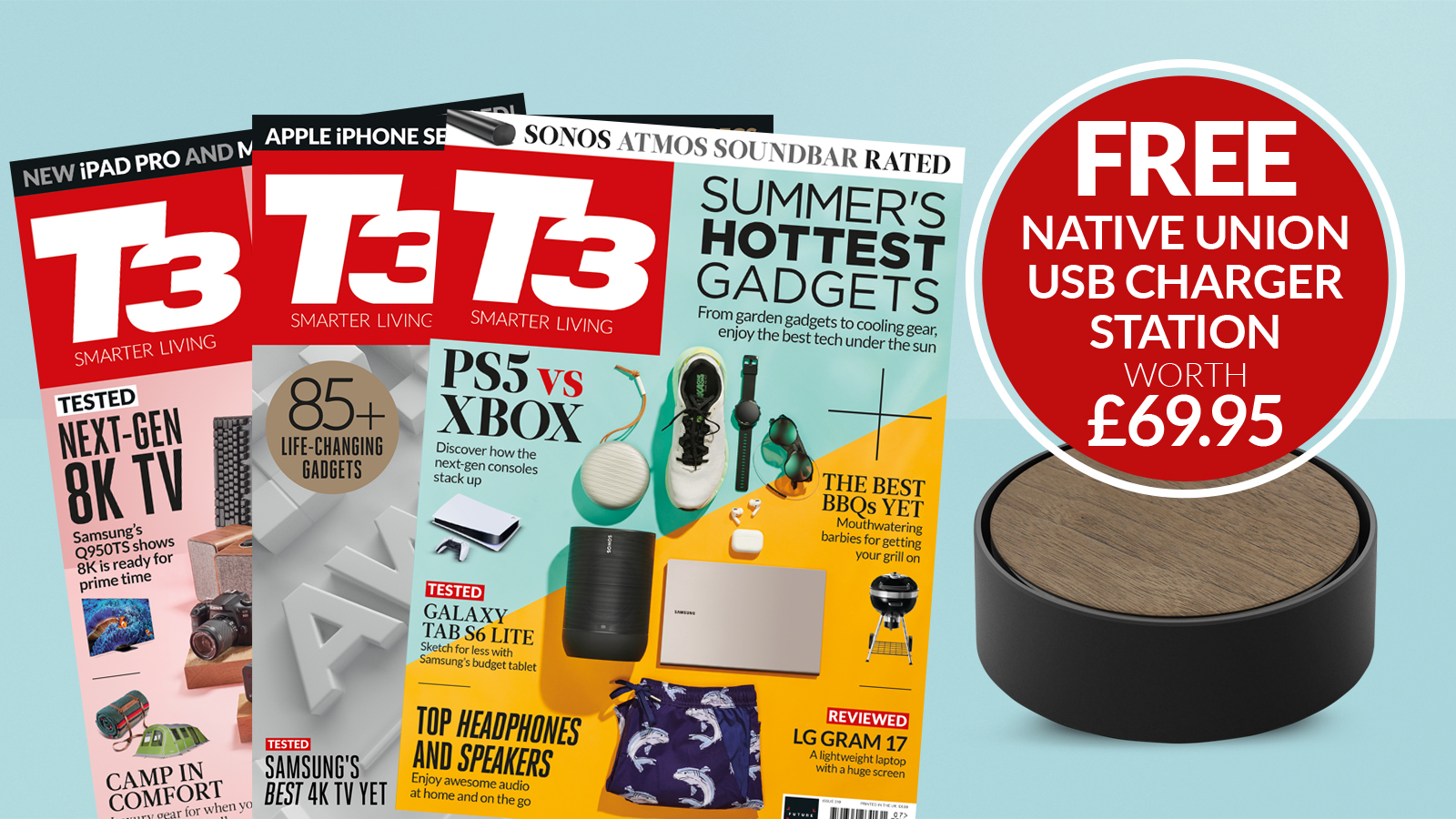
Save 35% on a subscription to Britain's best-selling gadget magazine, and get this great-looking Native Union charging station completely free!
Best full body workout – The BIG FIVE
Before doing any exercises, ensure you're all warmed up. Do 5-10 minutes of cardio plus a set or two of each move with lighter weights to wake your muscles up and prime your cardiovascular system for exercise.
Important: if you are new to weight lifting, start even the 'proper' lifting with smaller weights you can easily manage and work your way up slowly over days, weeks or even months. There is no need to rush into an injury; you won't impress anybody by pulling your back doing 120-kilo deadlifts. Be sensible and if you are ever in doubt, ask a professional. There are plenty of PTs lingering around in any commercial gym. Not to mention, most buff people in gyms are more than happy to give you unsolicited advice.
Battering the pain and DOMS away after workouts are best done using the best massage guns; they are the best massage tools to remove muscle knots and relieve muscle tension. Without further ado, the five essential compound exercises you need to master are:
Sign up to the T3 newsletter for smarter living straight to your inbox
Get all the latest news, reviews, deals and buying guides on gorgeous tech, home and active products from the T3 experts
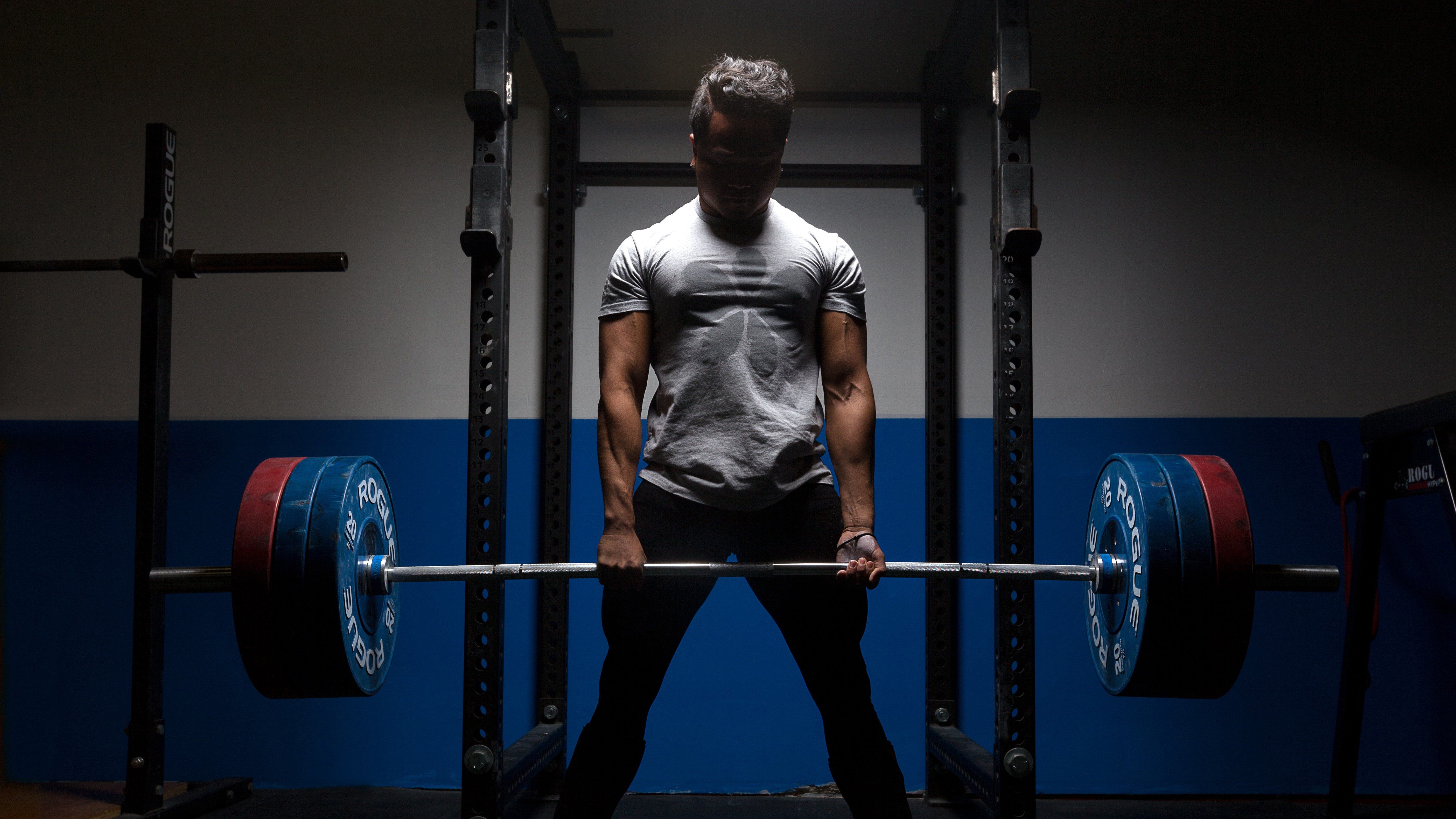
Keep your back straight and push with your legs first
1. Deadlift
In-depth: How to deadlift
Muscles worked: calves, thighs, glutes, core/abs, lower back, traps, rhomboids
Best for: Building overall strength
Sets/reps: Do three sets of 6-8 reps
The deadlift is also called the 'King of Lifts', and it's one of the best glute workouts and the best leg exercises. After all, deadlifts are the mother of all strength exercises! It activates almost all of your muscles, from your toes to your neck. Performed correctly, you will feel the burn after the first few reps and be pleasantly (?) exhausted by the end of the last set.
Keep your back straight and open up your shoulders to avoid back injury. The spine stays neutral through the movement. Legs are a little less than shoulder-width apart, hands grabbing the bar beside them on the outside.
Most people recommend using an 'over-under grip': one hand grabs the bar with an overhand grip while the other with an underhand grip. Alternate the grip between sets. Start the exercise by pushing the weights up with your quads and glutes. Once the bar reaches knee height, start straightening your back until you're all upright. Make sure you squeeze the shoulder blades at the apex of the movement.
The downwards movement mirrors what you did up until now: first, lower the weight using a hip-hinge motion, running the bar close to your leg, and once it reaches your knees, bend them and place the bar back on the ground.
Although deadlifts can be performed at home, it is advised to get someone to help you find the correct form first and then venture into testing your max capacity. Form is fundamental with deadlifts, and it is not all that difficult to injure yourself if you are not paying attention.

Activate your core before lifting the bar off the rack
2. Bench press
In-depth: How to bench press
Muscles worked: pecs (chest), triceps, front shoulders, traps
Best for: Working the chest and the arms
Sets/Reps: Do 3-4 sets of 8-12 reps
The bench press is your ultimate move to build big pecs, and it's even one of the best arm exercises for women and men. This exercise is synonymous with bodybuilding, and everyone knows how to do it right (or at least they think they do). That said, get someone to spot you (stand behind you) when you first try the bench press. Tuck in your elbows a bit and really concentrate on your pecs (i.e. chest muscles) both ways of the movement.
Alternatively, you can start off doing bench presses on the Smith machine (a large frame with a fixed-movement bar). Using the Smith machine, you don't have to concentrate on stabilising the bar, which makes it easier to push the weight up. Bench presses can be done on a flat bench or on an incline too. They can also be performed with dumbbells, and it is probably a more sensible way to do them if you are working out at home.

The bar should move straight up and down
3. Overhead press
In-depth: How to do the overhead press
Muscles worked: pecs (chest), delts, triceps, traps
Best for: Building shoulder definition
Sets/Reps: Do 3-4 sets of 8-10 reps
Sometimes called military press, this exercise is the best shoulder exercise to build boulder shoulders and massive arms. Keep your back straight and engage your core (if you are unsure how to do this, flex your abs and straighten your back), then press the bar up, avoiding your chin. The movement of the bar should be a straight line up and down; make sure you bob your head back and forth as the bar crosses in front of it. Shoulders can improve your looks significantly and are the key to getting great guns.

Rest the bar on your shoulders, not your neck
4. Squat
In-depth: How to squat
Muscle areas activated: glutes (aka the biggest muscle in your body), thighs, traps, abs/obliques, upper back/lats
Best for: Activating the thighs, glutes and improving core strength
Sets/Reps: Do 3 sets of 8-12 reps
The infamous leg exercise: squats are brilliant for all the right reasons. Barbell back squats (with the bar sitting on your shoulders) activate a range of muscles, including muscles supporting your spine, not just the legs and glutes. To hold the bar, you will need to engage your core as well as your legs. If you're brave enough – and use smaller weights, please – you can also do a calf raise after each rep to get big calves faster.
A variation on the theme is the front squat when you hold the bar in front of your neck. Be extra careful with this when you try it for the first time, and drop the weights you can lift with back squats significantly to avoid you falling forward. You use different muscles to stabilise the bar with front squats which might feel odd at first, especially after doing back squats for a bit.

Bent over rows can be performed with dumbbells too
5. Bent over row
In-depth: How to do bent-over row
Muscle areas activated: lats, shoulders, forearms and biceps, hams/glutes, spinal erectors
Best for: Widening the back (lats) and working your biceps
Sets/Reps: Do 3-4 sets of 8-12 reps
The bent-over row is the best back exercise and is performed – surprise! – bent over while you stand up, legs shoulder-width apart. Use an underhand grip (palms facing up when you hold the bar) to activate bicep muscles and pull the bar close to your abs (not your chest). This exercise is excellent for your arms and your back, as well as activating your core. You can do the bent-over row with dumbbells too. Same motion, just with holding a dumbbell in each hand.
Don't forget to get your protein
There are three key elements to effectively gain lean muscle mass: rigorous exercising, a healthy diet and rest. If you skip either of these, you might see slower muscle development or, even worse, injure yourself. Bulking is a popular word among bodybuilders: it means putting on weight, so your body can transform your carb and fat reserves into muscle mass. Bulking doesn't mean you can gorge yourself on pizza and pasta all day long, though.
Once you find your maintenance calorie level (if you have an office desk-based job and you are an average-built male, that's around 2400 calories per day), eat 5-700 more calories on top of that, mainly more protein and good carbs. That should be plenty to fuel your body to gain more muscle (and not fat).
Supplement-wise, you only really need two: the best protein powder and creatine. The former will help to repair torn muscle tissue, while the latter will boost performance.
We recommend getting unflavoured creatine because it mixes well with any liquid. You only need a small amount to keep your creatine levels saturated, so you can combine your daily dose of 3-5 grams of creatine with anything in the morning (water, juice, even coffee) without having to worry about an aftertaste. For more deets on how to bulk up properly, check out our how to gain weight naturally guide: it's as straightforward as it gets.
T3's workout guides
- Mike Tyson's bodyweight workout
- Henry Cavill's Witcher workout
- Arnie Schwarzenegger's full-body workout
- How to get big arms fast at home: the best biceps and triceps workout for home gyms
- Best home dumbbell workout for beginners
- Best callisthenics workout: 5 exercises and almost no equipment can get you ripped
- Best home workout: hit the home gym hard with THE 5 BEST home gym exercises
- Best kettlebell workout for beginners: everything you need to get swinging fit
- Get bigger pecs and arms: this two-day push-pull upper body workout will get you strong in no time
- How to get big arms fast: the best bicep and tricep workouts for gaining guns

Matt Kollat is a journalist and content creator who works for T3.com and its magazine counterpart as an Active Editor. His areas of expertise include wearables, drones, fitness equipment, nutrition and outdoor gear. He joined T3 in 2019. His byline appears in several publications, including Techradar and Fit&Well, and more. Matt also collaborated with other content creators (e.g. Garage Gym Reviews) and judged many awards, such as the European Specialist Sports Nutrition Alliance's ESSNawards. When he isn't working out, running or cycling, you'll find him roaming the countryside and trying out new podcasting and content creation equipment.
-
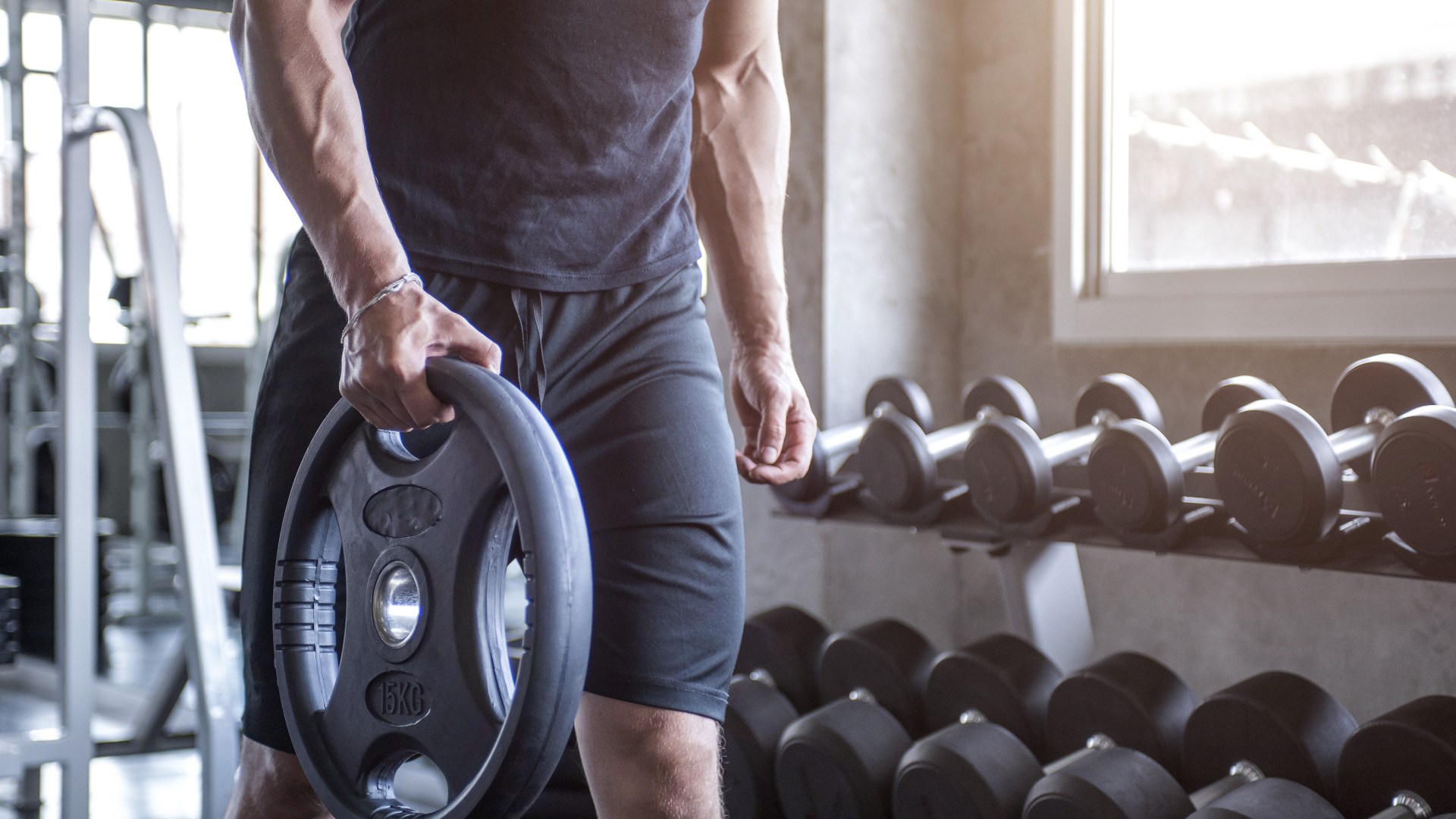 7 best exercises to boost your grip strength for bigger gains
7 best exercises to boost your grip strength for bigger gainsIt can also help you live longer too
By Bryony Firth-Bernard
-
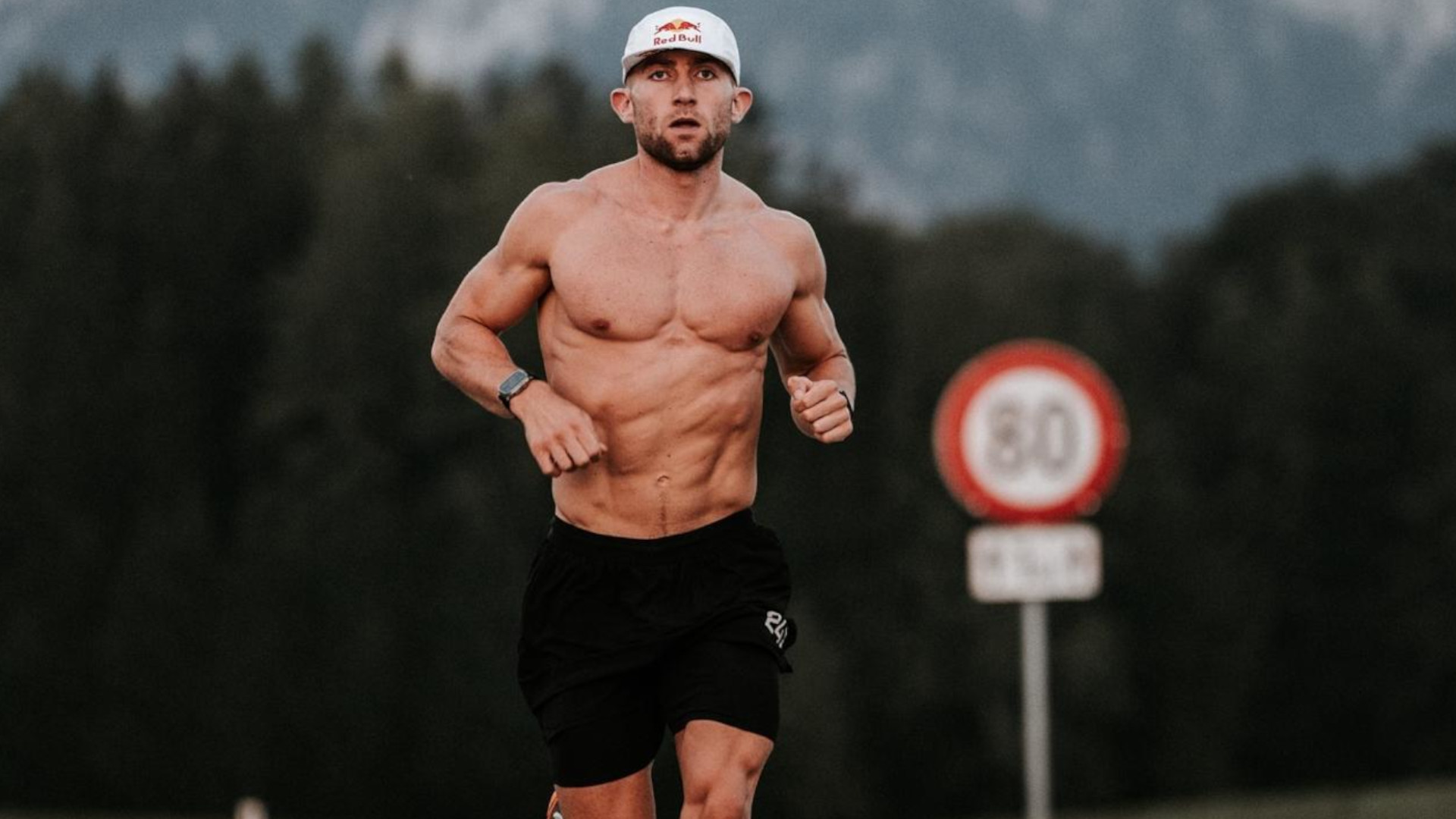 Jake Dearden’s Hyrox training regime and 4000-calorie diet
Jake Dearden’s Hyrox training regime and 4000-calorie dietFind out how the Hyrox champ trains weekly and fuels his sessions
By Bryony Firth-Bernard
-
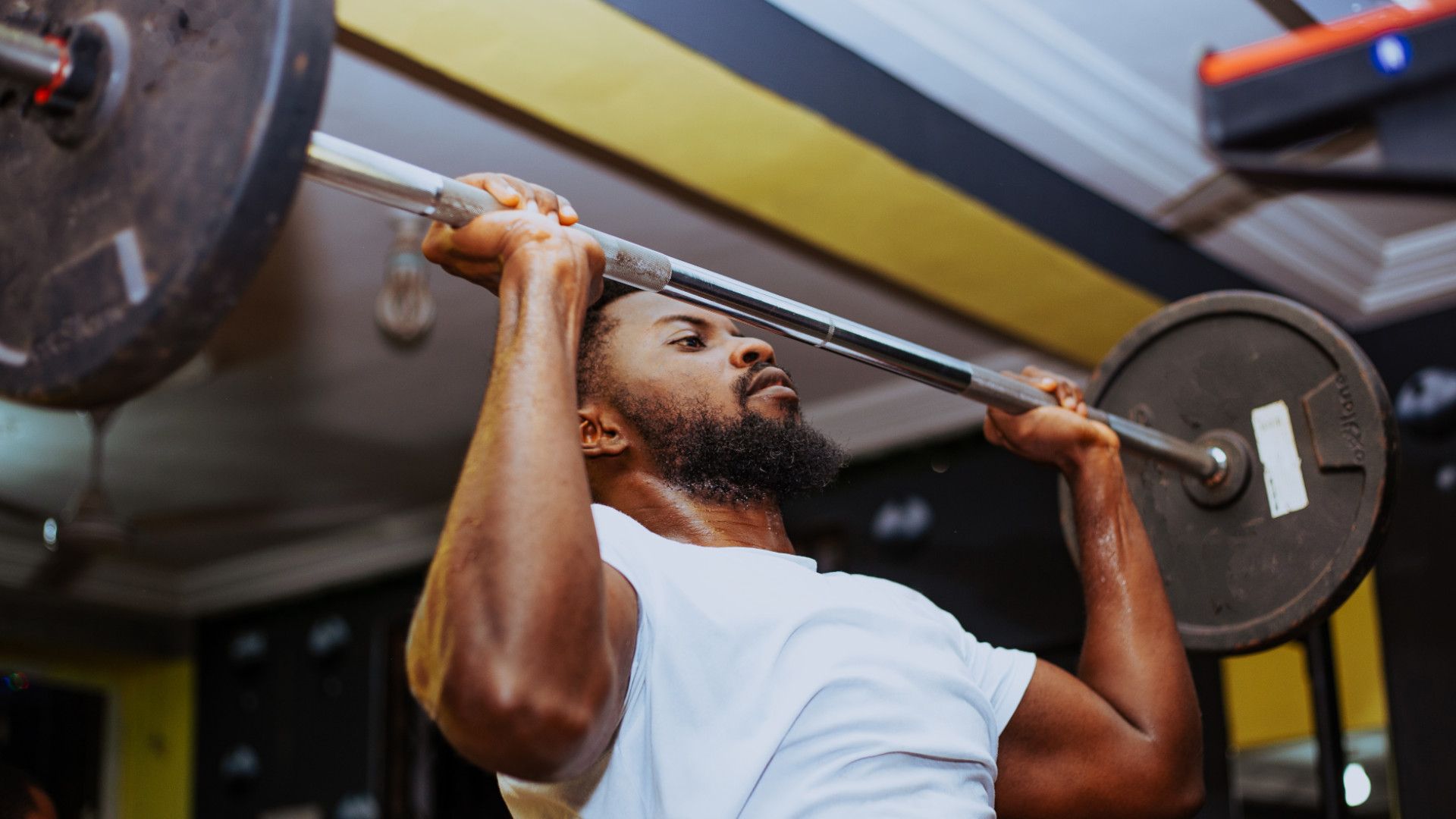 The 5 most efficient exercises for adding strength and size
The 5 most efficient exercises for adding strength and sizeExercise Scientist Dr. Mike Israetel says these are the lifts you should prioritise if you want to get jacked and strong
By Bryony Firth-Bernard
-
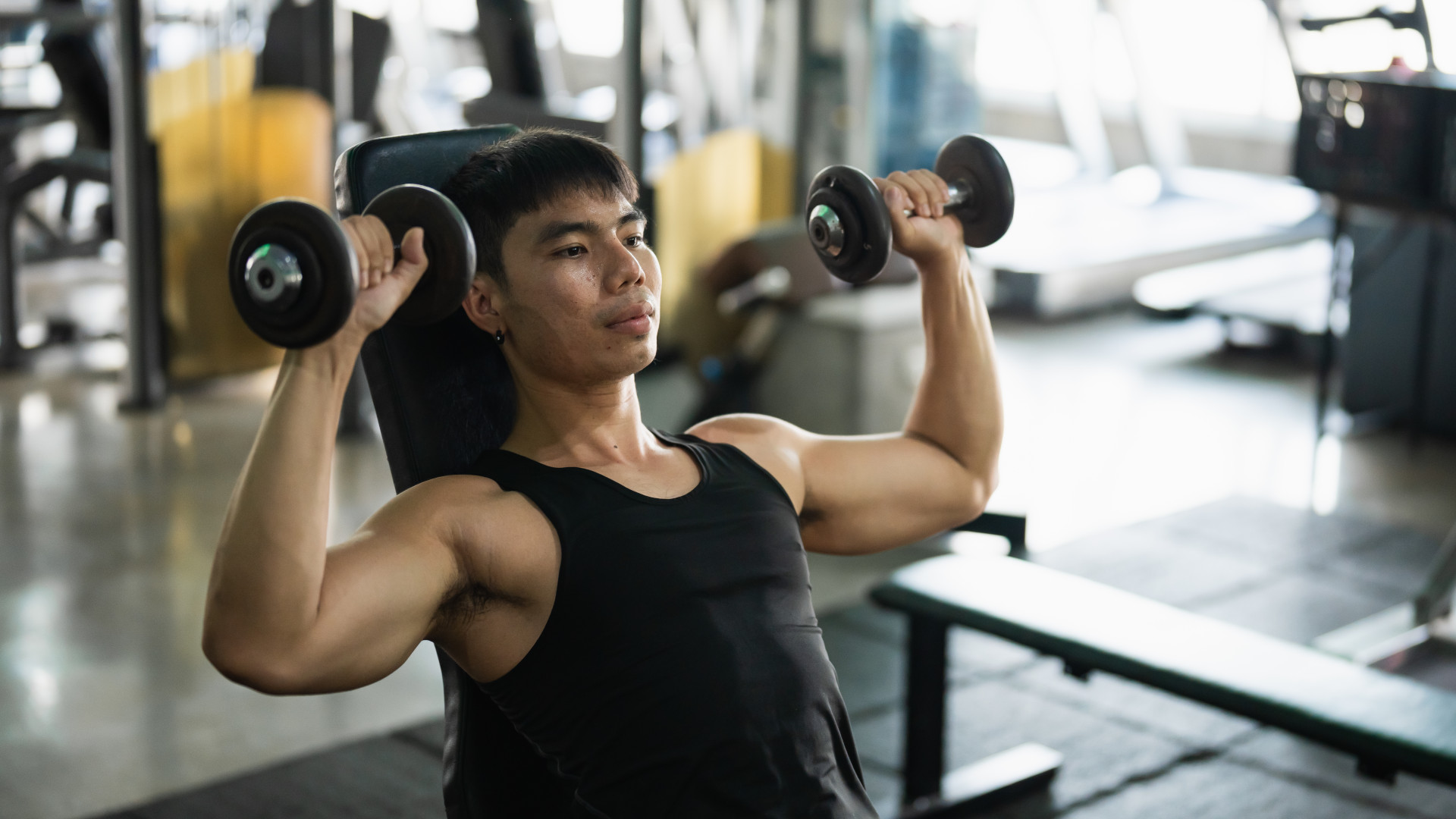 3 overrated shoulder exercises, according to a fitness expert (and what to do instead)
3 overrated shoulder exercises, according to a fitness expert (and what to do instead)Sculpt 3D shoulders whilst minimising injury with these three alternative exercises
By Bryony Firth-Bernard
-
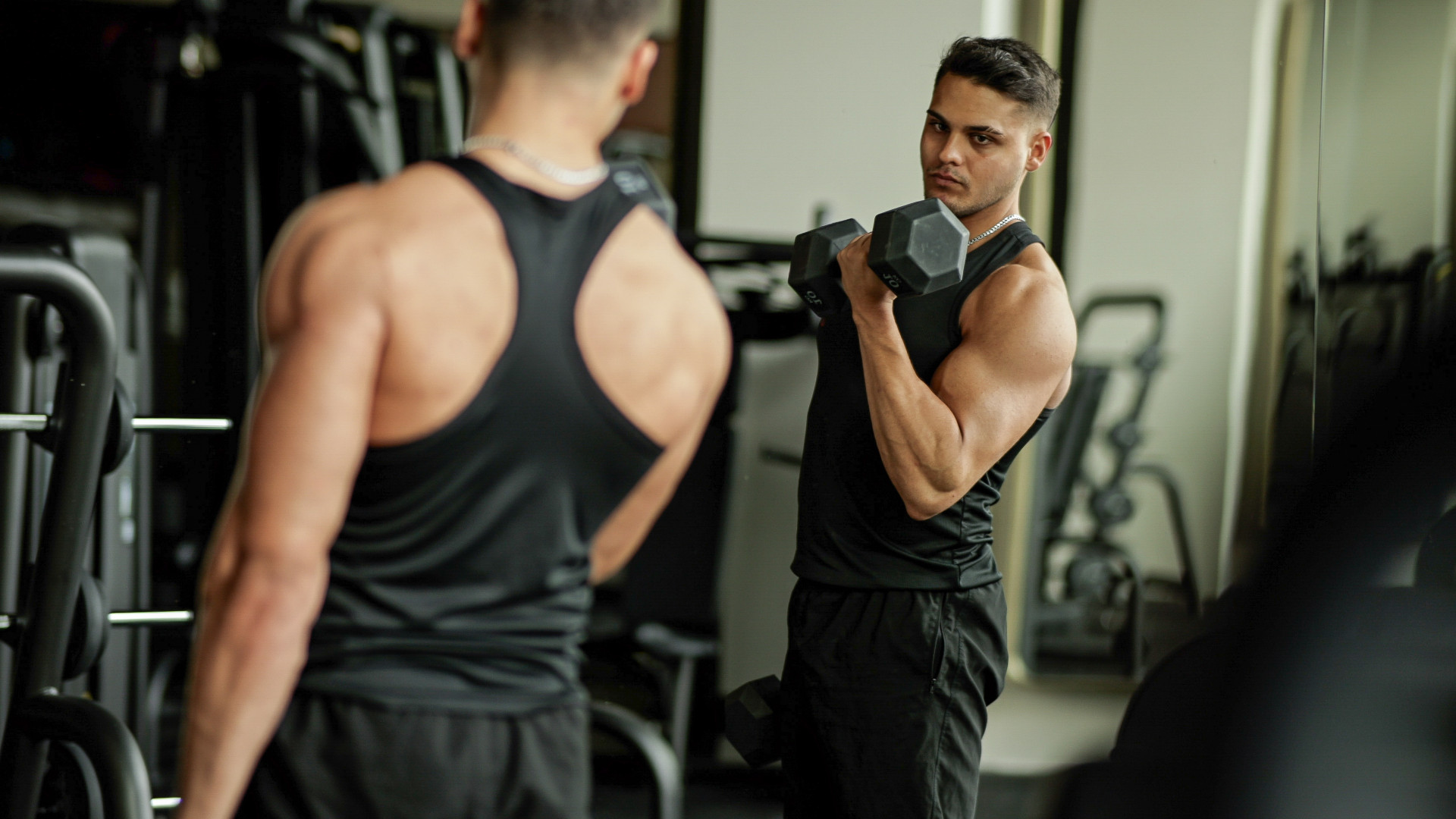 The best biceps exercise, according to science
The best biceps exercise, according to scienceHave you been training your biceps wrong this whole time?
By Lucy Miller
-
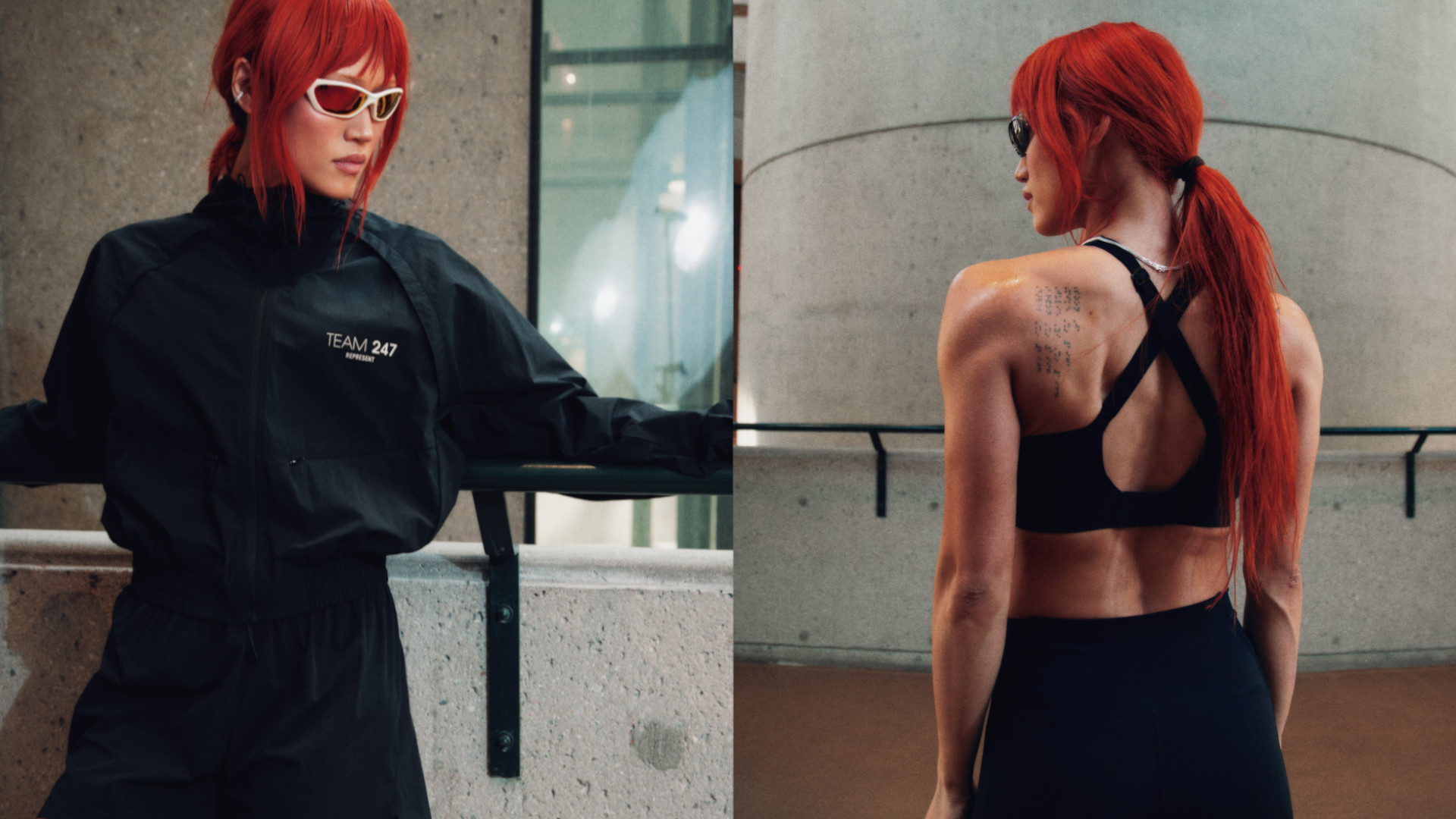 Finally! Represent 247 launches its first womenswear collection, taking you from street to gym in style
Finally! Represent 247 launches its first womenswear collection, taking you from street to gym in styleIt's about time guys
By Bryony Firth-Bernard
-
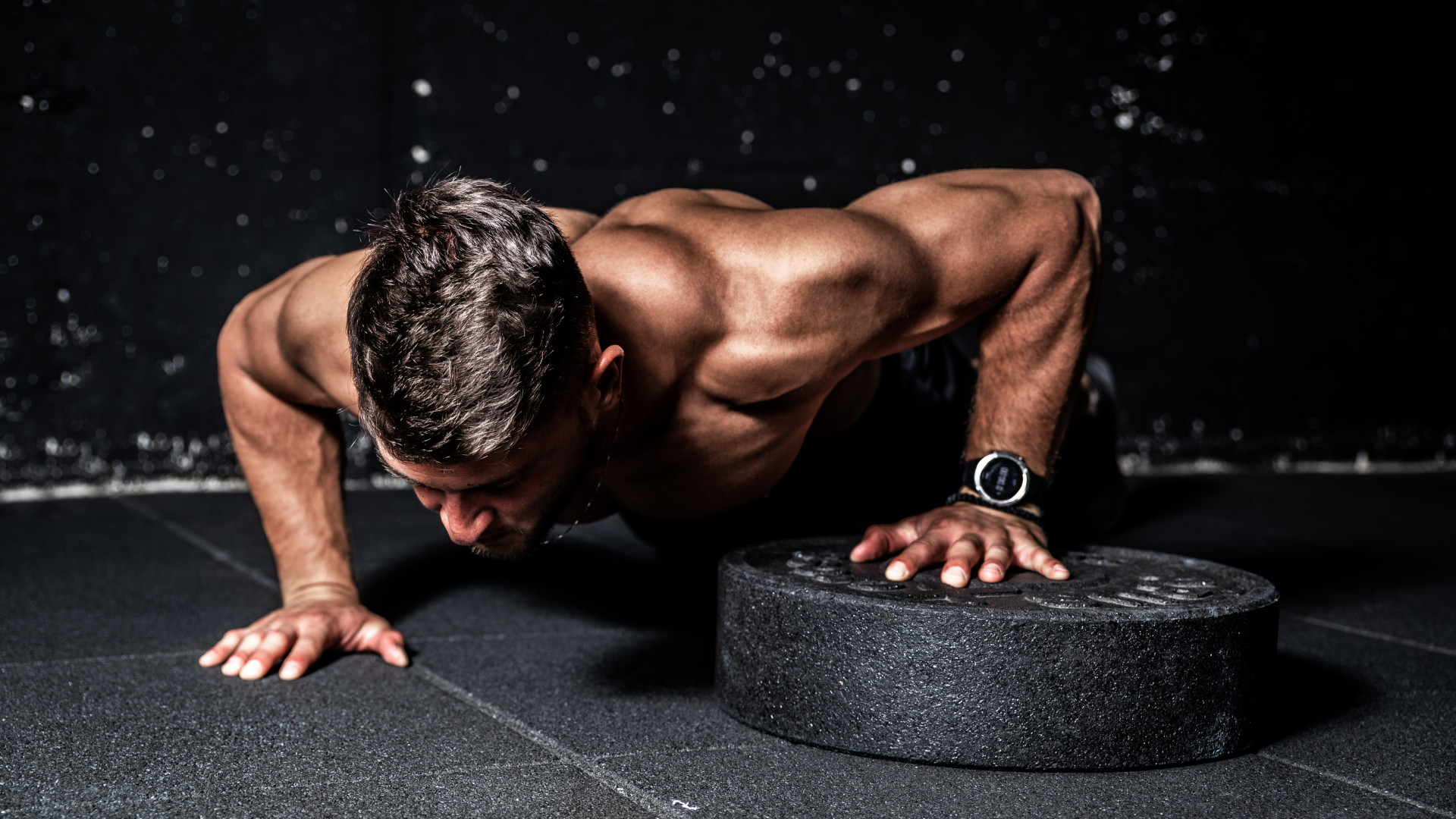 3 chest exercises you’re probably not doing to supersize your pecs
3 chest exercises you’re probably not doing to supersize your pecsA killer pec pump awaits
By Bryony Firth-Bernard
-
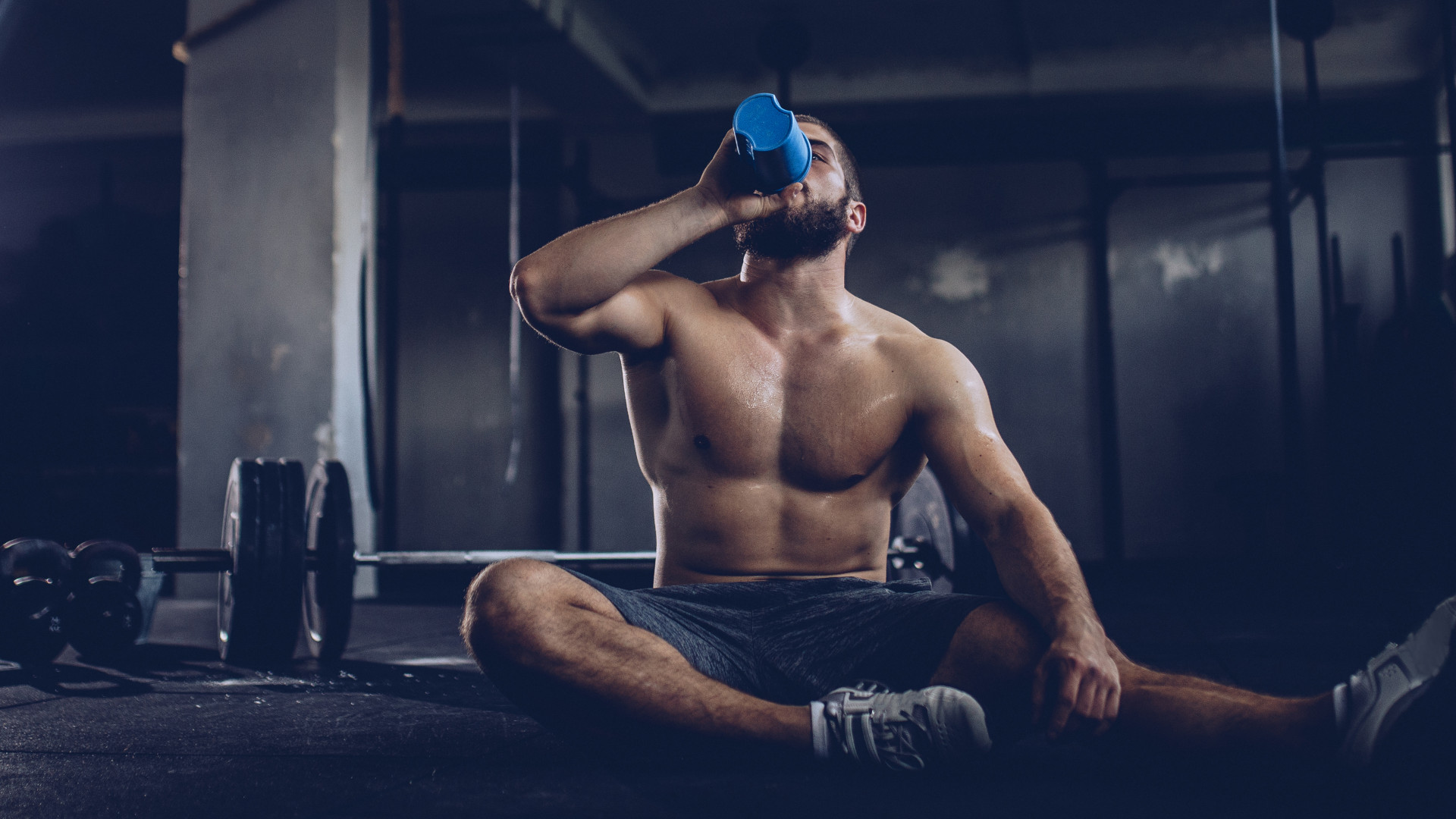 When’s the best time to take creatine?
When’s the best time to take creatine?The science-backed supplement is a must for building strength and muscle, but is there an optimal time to take it?
By Bryony Firth-Bernard
